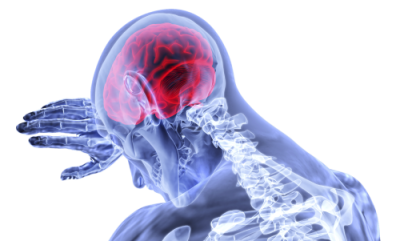I am seeing lots of questions and case reports popping up online from people dismayed by sudden depressed mood or high anxiety following either natural Covid infection or vaccination. The science of neuroimmunology tells us that to a large extent this is to be expected (not ‘normal’ or desirable, but expected) and should be temporary.
If this is happening to you or a loved one, here’s what might be going on and what you can do…

Your body’s natural and necessary reaction to threat is inflammation. This is what happens when your immune system activates in response to a virus, other pathogen, vaccine, autoimmunity, allergy, toxin, injury, or even extreme stress.
However, inflammation in the body and brain can also cause mental health symptoms such as anxiety, depression, irritability or mania. Research shows that the more extreme the immune activation/inflammation, the worse the psychiatric symptoms.
The good news is that when inflammation resolves, mood should gradually return to its pre-inflammatory state.
The challenge, though, is getting back there. Brain inflammation can be uniquely difficult to calm down and sometimes requires special strategies. Scientists say that it can continue long after the body’s inflammation has resolved, because the brain’s immune defences (microglia) function differently and don’t have a very effective off-switch.
Those with a predisposition to autoimmunity may have particular problems, because their extra enthusiastic inflammatory responses can exacerbate these effects.
If inflammation is extreme, or low-grade but chronic, cognitive symptoms can also appear, such as…
- memory problems
- brain fog
- fatigue
- difficulty finding words
Even subtle problems with motor control can appear, or seemingly random and puzzling bodily symptoms, as a result of the brain/nervous system struggling to do its job as master controller while inflamed.
There are other possibilities too. If you have been treated with strong antibiotics, this can knock out some of the good bacteria in your gut that…
- help to keep inflammation in check
- manufacture Serotonin (your ‘happy and calm’ neurotransmitter)
- directly influence mood via your Vagus Nerve
(This is the new and remarkable world of the psychobiome. It’s a big topic of its own that I’ll save for another time.)
Confoundingly, corticosteroids used medically to calm specific inflammatory pathways can have their own mental health effects, and not in the direction you’d hope. For some people they make psychiatric symptoms markedly worse.
So if you find yourself experiencing mood or cognitive changes that you suspect might have been triggered by immune activation or associated treatment, you might like to find an integrative doctor, or a licensed mental health professional or naturopath who is very skilled and knowledgeable on this subject, to help you. With the right strategy, it should be resolvable.
Unfortunately, studies suggest that Covid may be additionally problematic for the brain because it can also trigger widespread clotting in blood vessels. If you experience sudden loss of function such as reduced control of body parts, slurred or muddled speech, loss of vision, or severe uncharacteristic head, jaw or gut pain, make a visit to the emergency department. Don’t wait to see your regular health practitioner.
Fascinating research published in December 2020 proposes that the Covid S1 spike protein itself is the chief suspect in the above clotting problems, because scientists observed it causing damage to brains in the absence of the virus. They explored this by injecting the S1 and S2 portions of Covid spike proteins into mice, and by examining Covid post-mortem human brains.
References
.